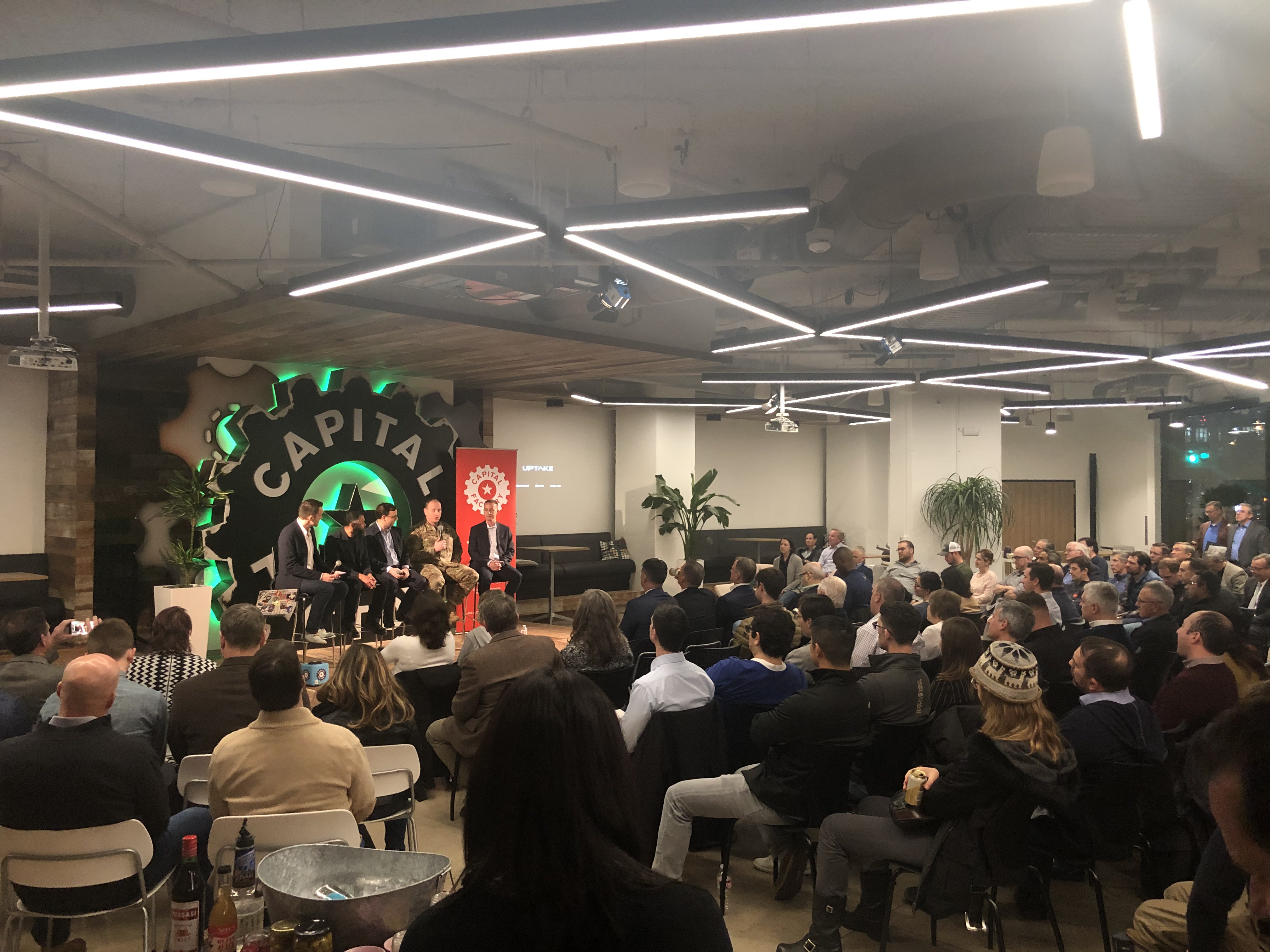The Capital Factory in Austin recently hosted two events highlighting the work the Defense Innovation Unit is doing to attract new companies to the Department of Defense (DoD). The first event, on January 30, highlighted the work startup Uptake is doing to bring predictive maintenance, leveraging artificial intelligence (AI) to the DoD. The second event, on February 28, featured startup ForAllSecure’s contribution to Project Voltron, which aims to use AI to automatically detect and patch vulnerabilities in critical systems.
Senior executives of both companies emphasized the benefits of working with DIU and its streamlined processes as opposed to going through the traditional contracting process. Ganesh Bell, President of Uptake, stated “As a startup, our resources are very very scarce... DIU facilitated us to move at the speed [required by] startups.”
“There are important differences between DoD...and DIU,” stated ForAllSecure Founder and CEO Dr. David Brumley. “It allowed us to get contract funding without angel or seed stage investment. When we finally went to [venture capitalists] we were a much more mature company which meant less dilution.” Investors will normally take equity in a company, a process referred to as “dilution.” DIU’s contracts provide a non-dilutive source of capital for startups.
The experience of ForAllSecure in securing a strong fundraising round as a result of a DIU contract is not unusual. Drone startup ShieldAI raised an $11mm Series A round about seven months after being awarded a $1.4mm contract by DIU in August 2016.
DIU also allows startups to book revenue as product companies, not merely service providers, which has additional benefits for founders looking to sell their companies. “When working with DIU it’s not a services-based contract,” Brumley pointed out. “Acquisitions for service-based companies are two to three to four times that of your revenue, whereas for product-based companies it’s ten times that of your revenue.”
Both founders also addressed a common founder and investor concern of working with the federal government--that it is a distraction from a larger commercial market. DIU was created in part to eliminate that concern by providing rapid contracts with minimal paperwork. The time period between the Project Voltron Commercial Solutions Opening being posted on DIU’s website and the contract to ForAllSecure being awarded was twenty-six business days.
Bell emphasized how that changed the game for a startup making hard decisions between verticals: “[Working with DIU] was faster than attempting to go into another industry...were it say energy and manufacturing, oil and gas, and heavy equipment, for us to go into a yet another new industry would have required way more up-front investment.”
Brumley expressed a similar sentiment: “The DoD is many customers. Often people will say ‘You’re customizing to one customer,’ and I think that’s naive.” He continued “You get to go to these multiple customers [within DoD], and often they share the same challenges that you find in the commercial sector. The trick is finding problems that DoD has that also are found in the commercial sector...You have a great strategy when you want to expand your business.” He continued: “Partners like DIU really help with this vision of moving what otherwise would be a science project into something...that you can build a company around to build a product that people will buy.”
Both companies also pointed out how DIU’s process can initiate a cycle of innovation with mutual benefits. “If we can help with the Bradley [combat vehicle], we can probably help you design a better vehicle or even figure out where the next set of sensors need to go and how that connects to your supply chain,” stated Bell. “If we don’t deliver, we don’t get paid…it benefits the government because all the risk is on us to succeed,” declared Brumley.
There are key strategic benefits of DIU’s rapid contracting process as well. “We have six percent of the world’s population, China has like twenty-three percent,” stated Brumley. “So what you want is to take that six percent and be building these new techniques and building computers to emulate the persons always running in the background.” After ForAllSecure initially proved its technology by winning the 2016 DARPA Cyber Grand Challenge, both China and Israel pursued contracts with them. Thanks to DIU, the U.S. government was able to move faster than either country to provide capital. As Brumley warned, “It’s almost easier...to sell internationally than to DoD.”
DIU awarded a prototype contract to Uptake in June 2018 to apply its AI-fueled predictive maintenance system to the Army’s Bradley combat vehicles. In addition to DIU’s contract with Uptake, the Unit is also working with enterprise AI company C3 and the Air Force to apply predictive maintenance to a variety of aircraft, including the E-3 Sentry, C-5 Galaxy, F-16 Fighting Falcon, and F-35 Lightning II.
DIU has awarded approximately $340 million in prototype contracts to more than 90 companies. To learn how to work with DIU, please visit our website.
